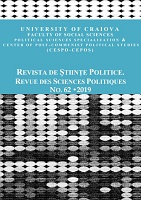Athena Rising? Mentoring in Higher Education
Athena Rising? Mentoring in Higher Education
Author(s): Costina Denisa BărbuceanuSubject(s): Gender Studies, Higher Education
Published by: Editura Universitaria Craiova
Keywords: androcentric theory; mentor; protégé; cross-gender mentoring relationships;
Summary/Abstract: The prerequisite for a mentor in the work environment is evermore present, but the availability of the mentors has also been limited, and the predominant gender was represented by men, patriarchal figures. Mentoring is furthermore “a relationship between an older, more experienced adult and an unrelated, younger protégé – a relationship in which the adult provides ongoing guidance, instruction and encouragement aimed at developing the competence and character of the protégé.” (Rhodes, 2009). Mentoring is seen as moreover “a dynamic reciprocal relationship in a work environment between an advanced career incumbent (mentor) and a beginner (protégé) aimed at promoting the career development of both.” (Johnson, 2015). The mentor, a role model, who has the benevolence and ability to offer academic, professional and personal development paired with caring and nurture was somehow inaccessible, in the post-communist years, for students. In the academe environment the role of mentor is crucial, in order to channel the protégé on the right path to goal achievement. Mentoring is often regarded as being a developmental, circular process, in which the mentor guides, inspires, teaches and nurtures the protégé, who, can, in turn, become a mentor himself for others, sharing the same feelings and attention necessary in this relationship because furthermore “those who received mentoring as protégés were more likely to become mentors themselves one day” (Allen, Eby, 2011).
Journal: Revista de Științe Politice. Revue des Sciences Politiques
- Issue Year: 2019
- Issue No: 62
- Page Range: 45-54
- Page Count: 10
- Language: English

